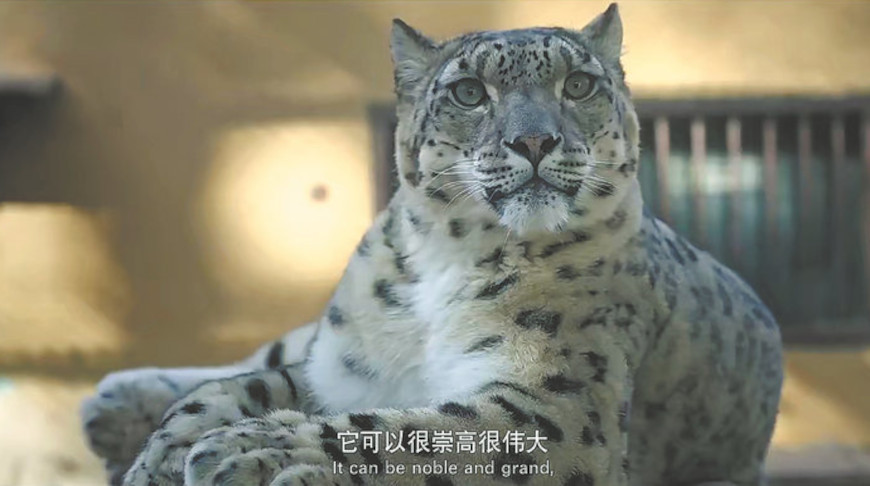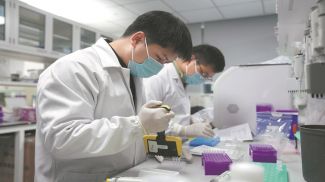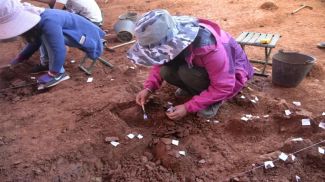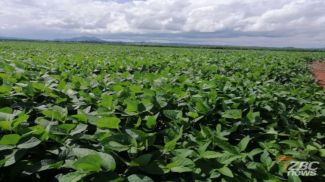
BEIJING, 11 July (BelTA - China Daily) - Chinese director Lu Chuan's latest documentary on wildlife protection
and rescue shows how artificial intelligence-powered personal computers
can engage in and benefit content creators, according to industry
insiders.
Premiering at this year's Shanghai International Film Festival last month, the documentary Qinghai-Tibet Plateau Wildlife Park is the latest such effort of Lu, whose works include Kekexili: Mountain Patrol (2004) and Born in China (2016).
The latest documentary allowed the in-depth involvement of AI solutions throughout its production by Lenovo Group, the world's largest personal computer maker by shipments.
The Chinese name of the documentary, Xiye, is an abbreviation of xining yesheng dongwuyuan, or Xining Wildlife Park in Xining, Qinghai province. It offers insights into the park's efforts in rescuing and breeding wildlife.
"With the help of Lenovo's AI PCs, the film's production efficiency has been greatly enhanced," Lu says, adding that the audio, video and image generation has become easier and the whole production process runs more swiftly at a lower cost.
AI PCs have a revolutionary significance toward film creation, cultural activities and arts, according to the director. "With their full participation in the creative industry, AI PCs have become an inevitable topic," Lu says.
After experiencing the AI PC performance, security and confidentiality of data assets in the documentary's production, Lu says he believes that the popularity of AI PCs can close the gap between knowledge and technology for young creators in visualizing their projects.
"AI will quickly shorten, deepen and strengthen the creative chain in future practices, and the entire workflow will completely change, "Lu says.
AI PCs will develop the creator economy into a new driving force for China's economic development, according to Hu Yanping, an IT expert. Creators including filmmakers, musicians and programmers will form an industry with the involvement of tens of millions of people and an industrial scale of up to a trillion yuan ($137.57 billion), Hu says.
Moreover, technology has strong involvement in the wildlife park, says Qi Xinzhang, deputy head of the park. "The application of Lenovo's technology allows us to step out of the role of traditional zoos and effectively improve scientifically," Qi adds.
AI technology has been applied to the wildlife park for tracking and analyzing snow leopard behavior, creating a database of wild species and establishing a center for wildlife breeding, rescue and scientific research.
The documentary shows how animal protection workers respect and care for the wildlife. The park focuses on rescuing wild animals and strives to maintain the natural behavior of each animal.
Injured creatures will be rescued and treated in the park and released after regaining the ability to live in the wild. For those unable to live in the wild, the park will be their safe haven.
Premiering at this year's Shanghai International Film Festival last month, the documentary Qinghai-Tibet Plateau Wildlife Park is the latest such effort of Lu, whose works include Kekexili: Mountain Patrol (2004) and Born in China (2016).
The latest documentary allowed the in-depth involvement of AI solutions throughout its production by Lenovo Group, the world's largest personal computer maker by shipments.
The Chinese name of the documentary, Xiye, is an abbreviation of xining yesheng dongwuyuan, or Xining Wildlife Park in Xining, Qinghai province. It offers insights into the park's efforts in rescuing and breeding wildlife.
"With the help of Lenovo's AI PCs, the film's production efficiency has been greatly enhanced," Lu says, adding that the audio, video and image generation has become easier and the whole production process runs more swiftly at a lower cost.
AI PCs have a revolutionary significance toward film creation, cultural activities and arts, according to the director. "With their full participation in the creative industry, AI PCs have become an inevitable topic," Lu says.
After experiencing the AI PC performance, security and confidentiality of data assets in the documentary's production, Lu says he believes that the popularity of AI PCs can close the gap between knowledge and technology for young creators in visualizing their projects.
"AI will quickly shorten, deepen and strengthen the creative chain in future practices, and the entire workflow will completely change, "Lu says.
AI PCs will develop the creator economy into a new driving force for China's economic development, according to Hu Yanping, an IT expert. Creators including filmmakers, musicians and programmers will form an industry with the involvement of tens of millions of people and an industrial scale of up to a trillion yuan ($137.57 billion), Hu says.
Moreover, technology has strong involvement in the wildlife park, says Qi Xinzhang, deputy head of the park. "The application of Lenovo's technology allows us to step out of the role of traditional zoos and effectively improve scientifically," Qi adds.
AI technology has been applied to the wildlife park for tracking and analyzing snow leopard behavior, creating a database of wild species and establishing a center for wildlife breeding, rescue and scientific research.
The documentary shows how animal protection workers respect and care for the wildlife. The park focuses on rescuing wild animals and strives to maintain the natural behavior of each animal.
Injured creatures will be rescued and treated in the park and released after regaining the ability to live in the wild. For those unable to live in the wild, the park will be their safe haven.













